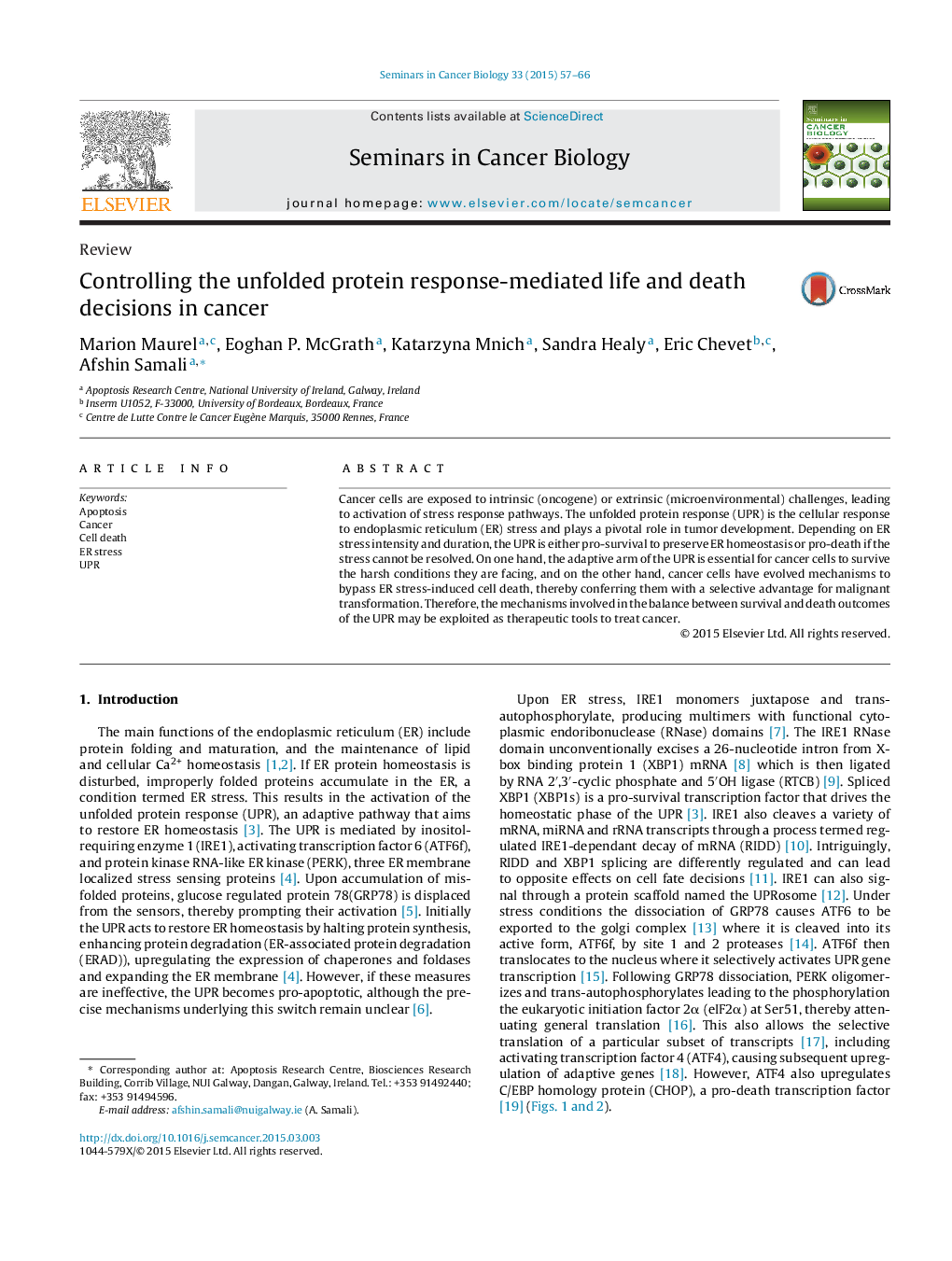| Article ID | Journal | Published Year | Pages | File Type |
|---|---|---|---|---|
| 2023600 | Seminars in Cancer Biology | 2015 | 10 Pages |
Abstract
Cancer cells are exposed to intrinsic (oncogene) or extrinsic (microenvironmental) challenges, leading to activation of stress response pathways. The unfolded protein response (UPR) is the cellular response to endoplasmic reticulum (ER) stress and plays a pivotal role in tumor development. Depending on ER stress intensity and duration, the UPR is either pro-survival to preserve ER homeostasis or pro-death if the stress cannot be resolved. On one hand, the adaptive arm of the UPR is essential for cancer cells to survive the harsh conditions they are facing, and on the other hand, cancer cells have evolved mechanisms to bypass ER stress-induced cell death, thereby conferring them with a selective advantage for malignant transformation. Therefore, the mechanisms involved in the balance between survival and death outcomes of the UPR may be exploited as therapeutic tools to treat cancer.
Related Topics
Life Sciences
Biochemistry, Genetics and Molecular Biology
Biochemistry
Authors
Marion Maurel, Eoghan P. McGrath, Katarzyna Mnich, Sandra Healy, Eric Chevet, Afshin Samali,
